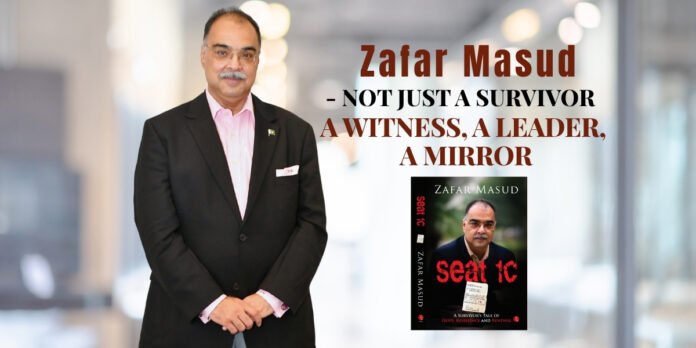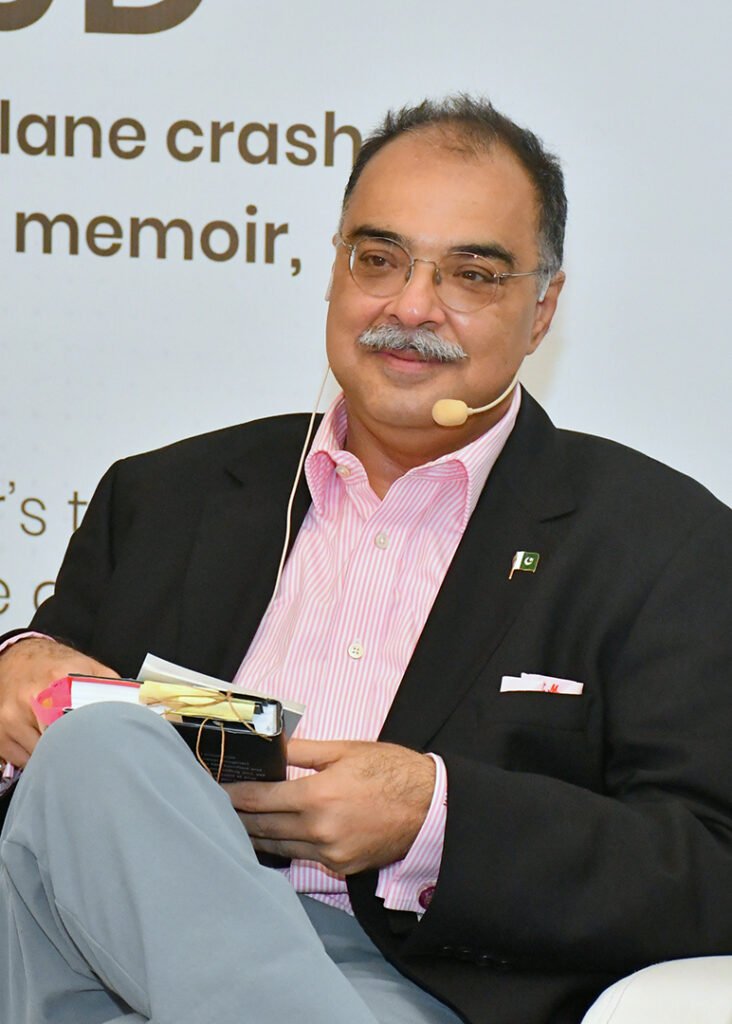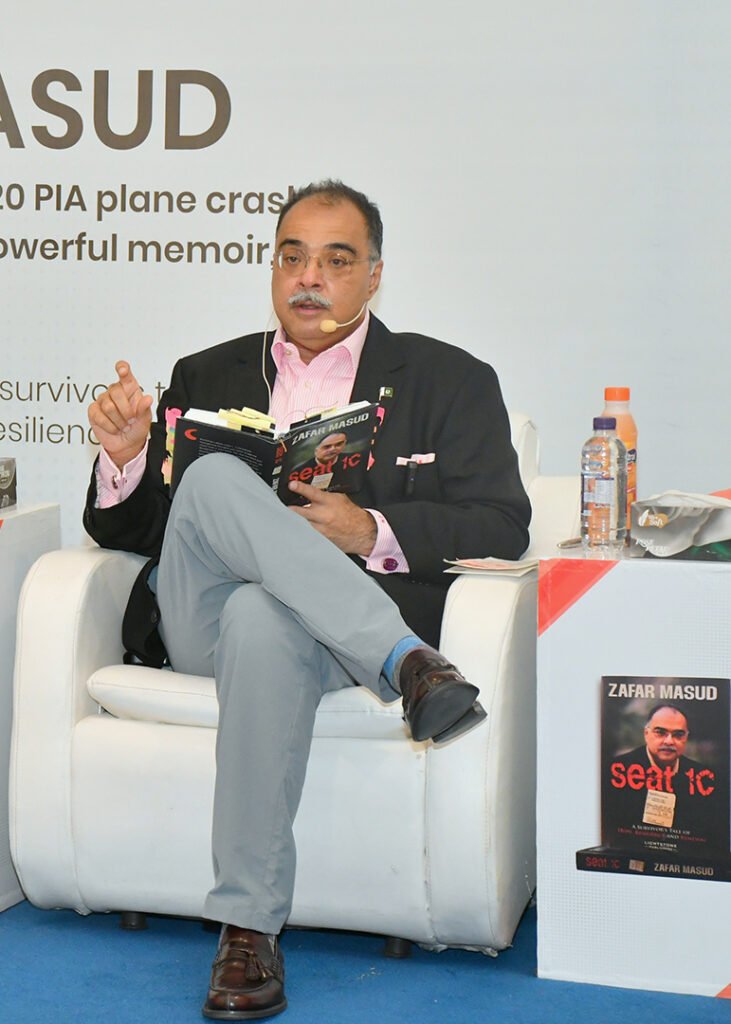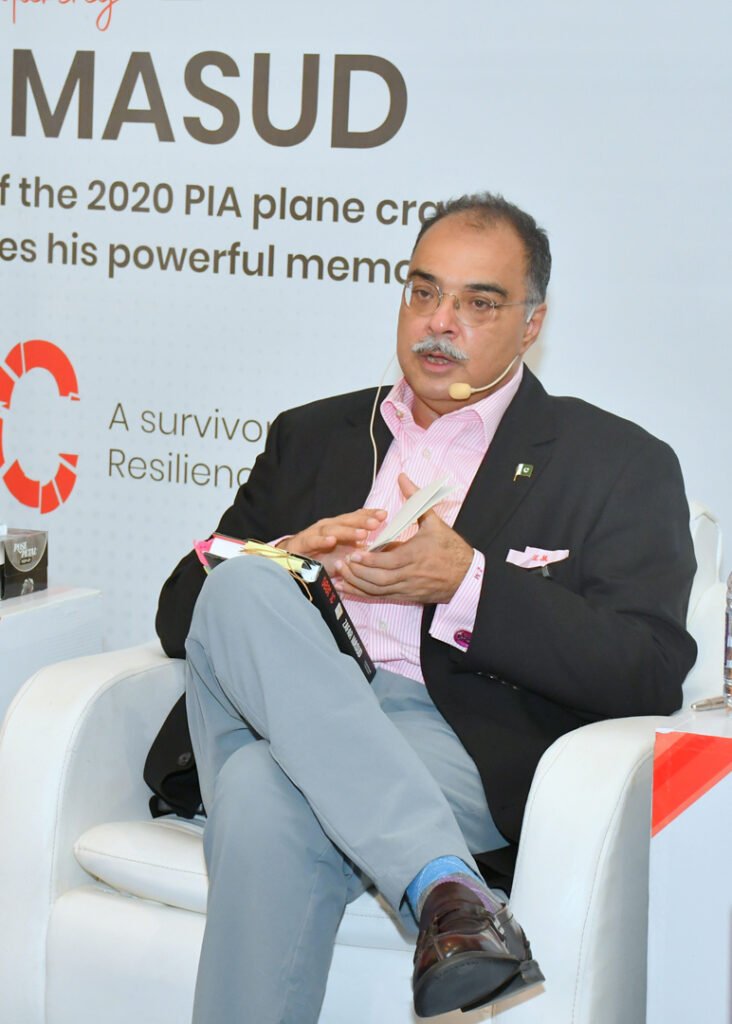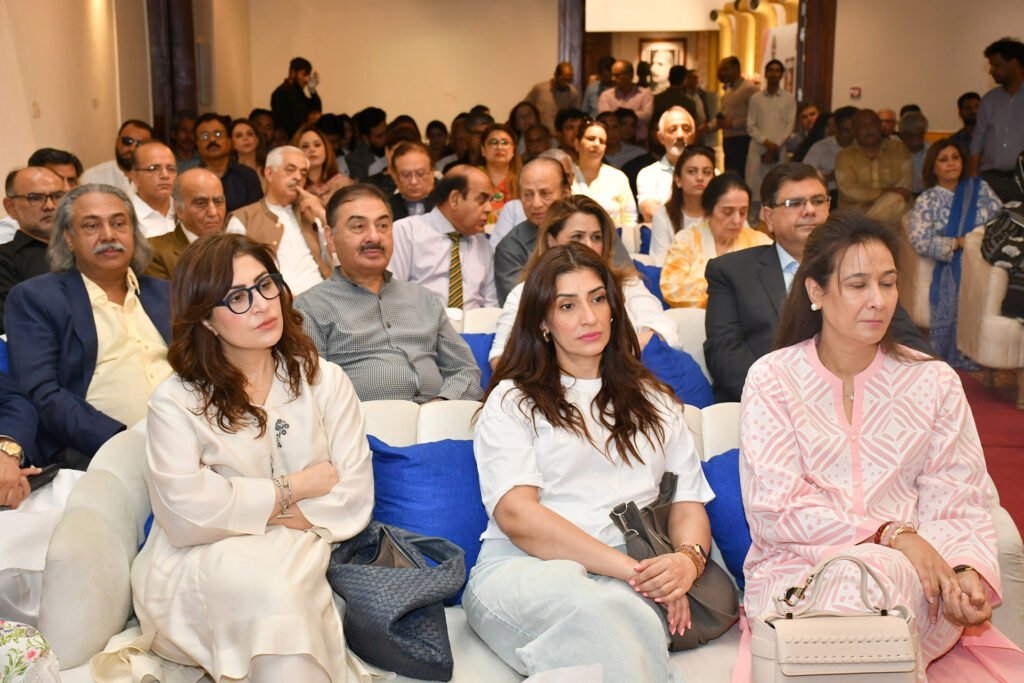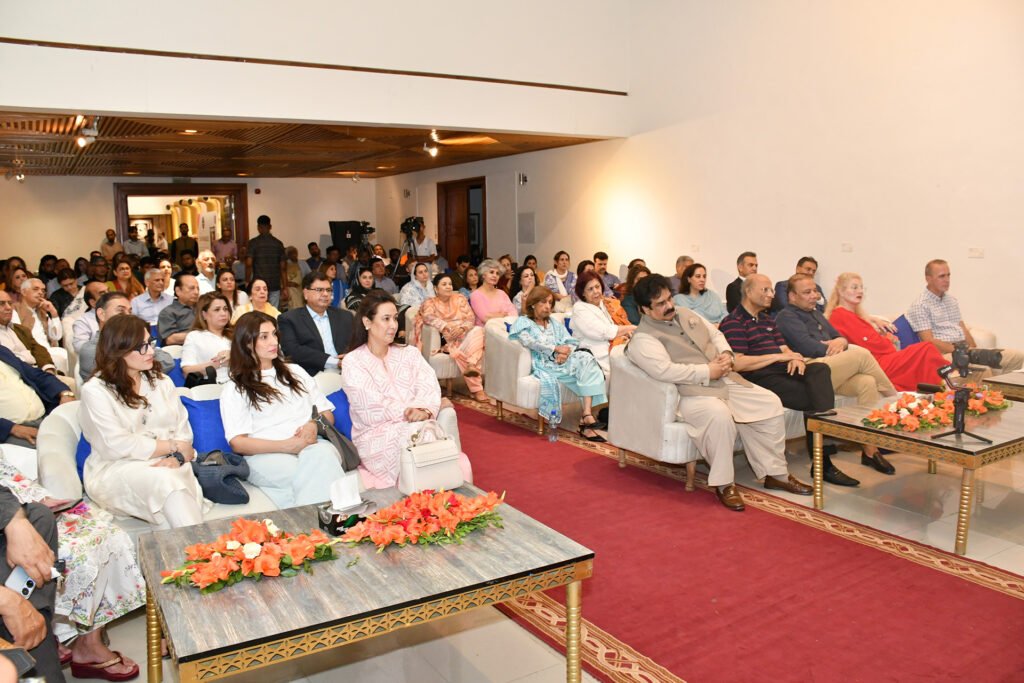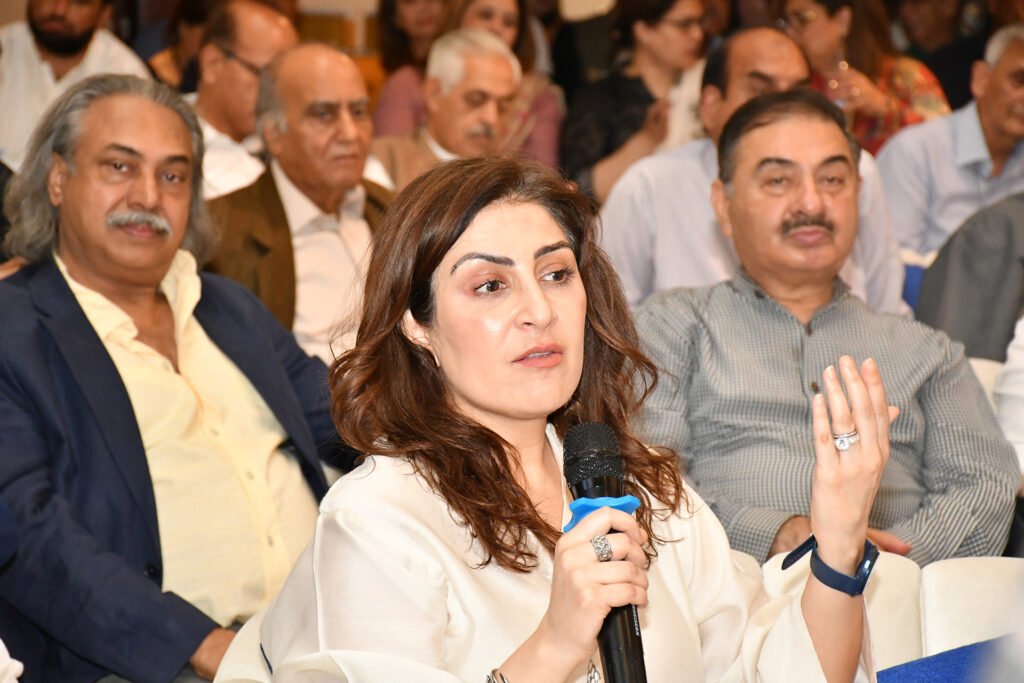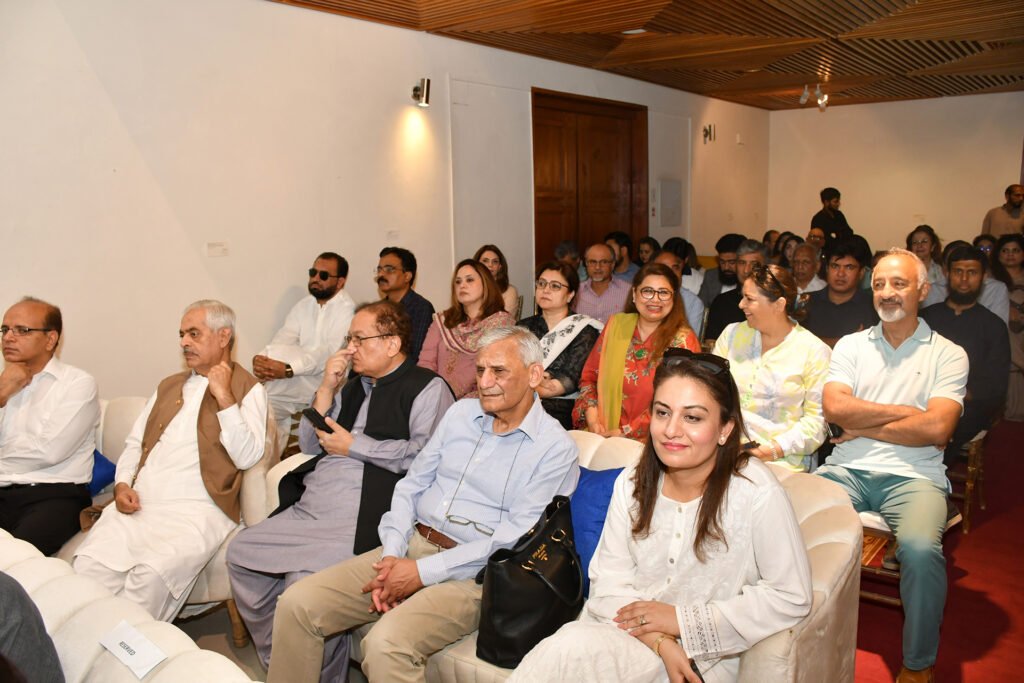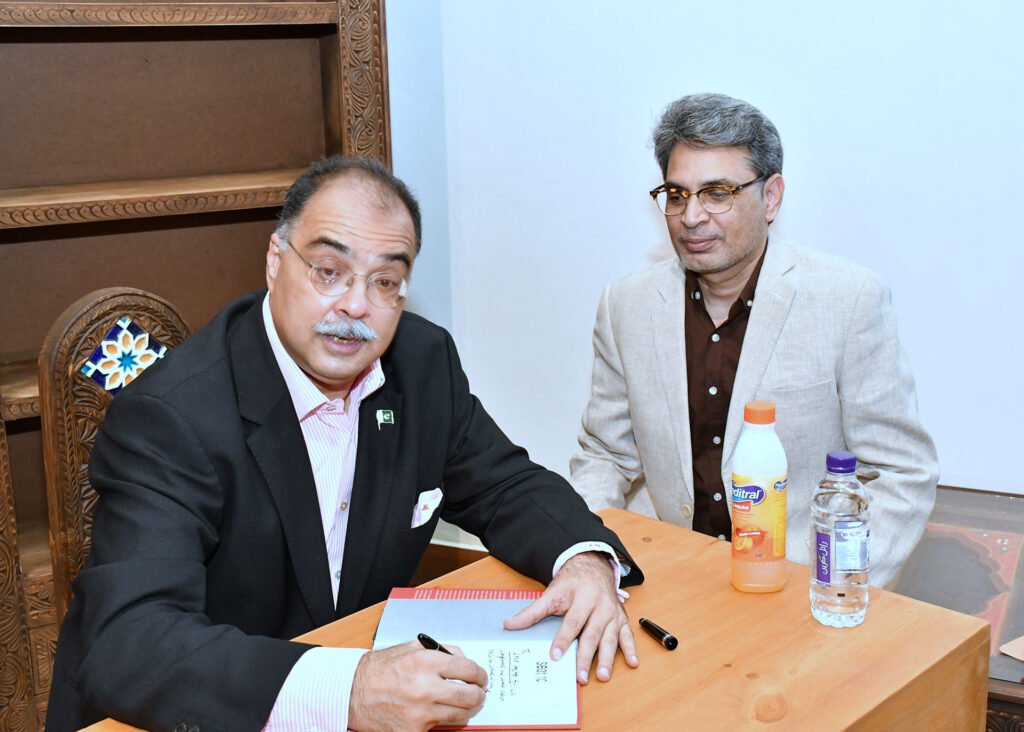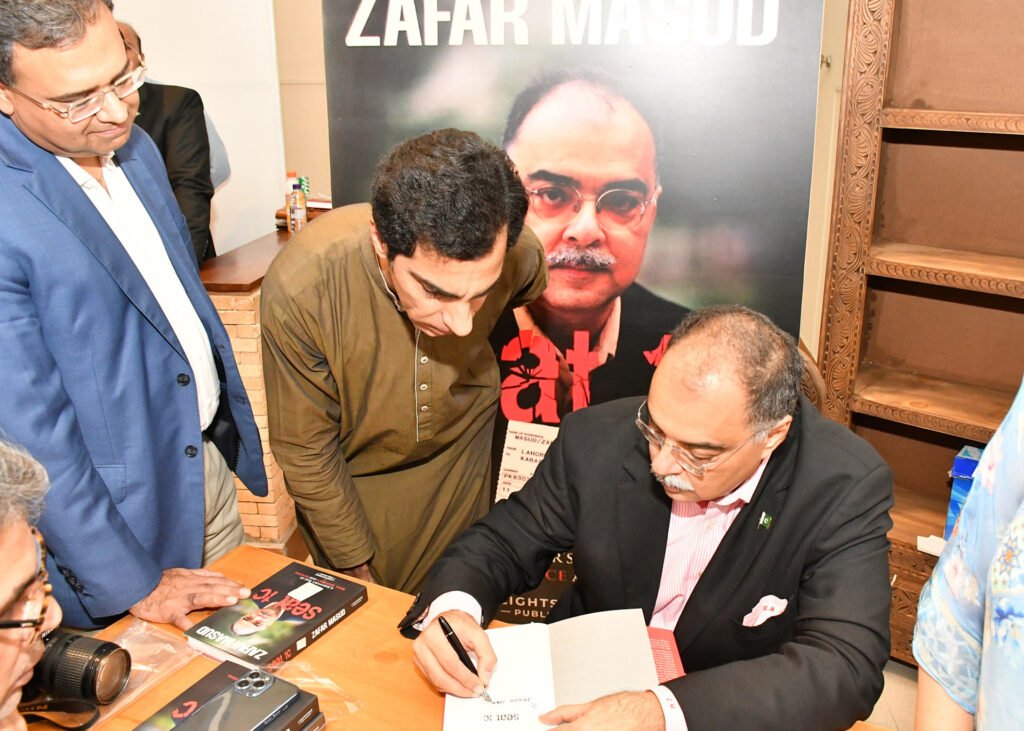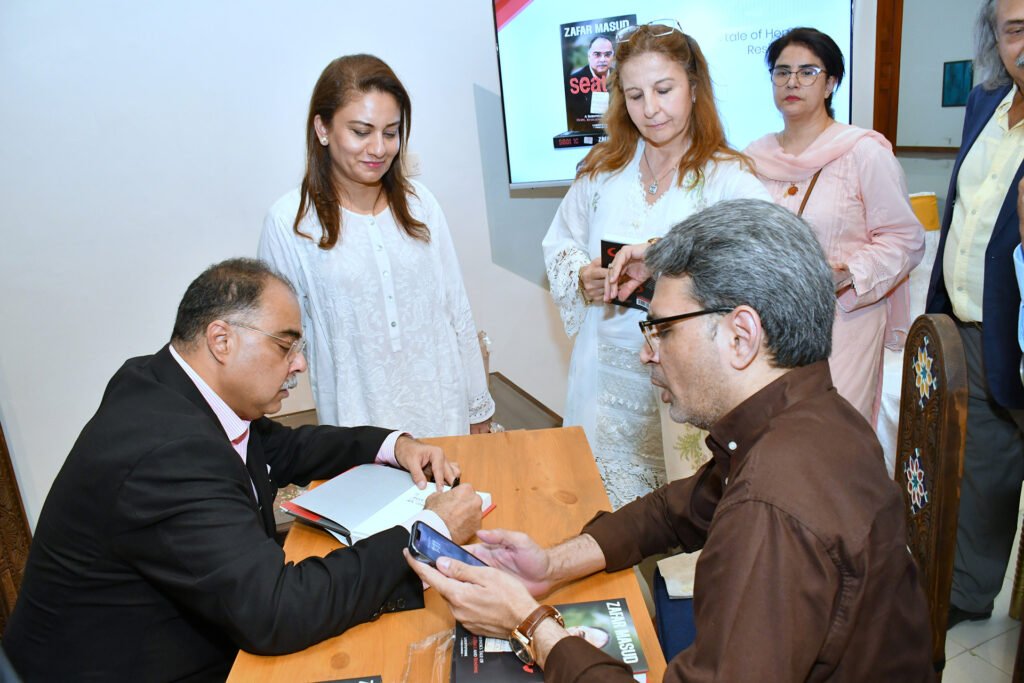In this powerful cover story, crash survivor and banker Zafar Masud opens up about the 30 seconds before impact, the miracle of survival, and the emotional aftermath. From mental health to leadership, he reflects on purpose, pain, and what it truly means to live—and live well.
Q: Can you take us back to the day of the flight? What do you remember?
ZM: It started like any other day. I’m not a morning person at all—I usually avoid early flights. I had initially booked myself on the 11 a.m. flight but later changed it to the 1 p.m. one so I could sleep in. Ironically, I ended up waking early anyway.
And strangely enough, I reached the airport an hour and a half early. But that day was different. Boarding happened early. There was an odd sense of urgency in the air. Other than that, it felt like a normal day.
Q: What were you looking forward to on that trip, and what went through your mind when you realized you had survived?
ZM: I was really looking forward to Eid. It was just two days away, and I was flying home to be with my family. I was especially excited to see my mother.
But I had no idea what was about to unfold. And that, I think, is the deepest lesson: we never truly know what the next moment holds.
When I realized I had survived, the first thing that came to my mind—almost instinctively—was not about myself, but the other passengers. I asked the ambulance driver, “What happened to the others?” And he replied, “You’re the first one we’ve rescued—we don’t know anything yet.” Even though I’ve always been an optimist—someone who looks at life as glass half full. But the moment I could think clearly, my mind went straight to those I’d left behind, and the people I loved.
Q: How did you survive this crash when others did not?
ZM: For a long time, I didn’t have an answer. Some people attribute it to my seat location. International media has pointed out that my seat—1C—may have played a role. And it’s not just speculation. There were three survivors: myself, Zubair from PK 8303, and now Vishwas Kumar from the Ahmedabad crash from AI 171. All of us were seated close to emergency exits. So yes, there may be something to that.
But at the end of the day, I believe it was a miracle. It was God’s will. His choice. And I have to live with the responsibility that comes with that.
Q: That’s profound. Now many would call survivors like yourself “the chosen ones.” Do you see it that way?
ZM: The phrase “chosen one” is often misunderstood. Yes, I may have been saved in a miraculous way, but to me, the real chosen ones are the people who have love around them. Survival isn’t just about miracles; it’s about connection.
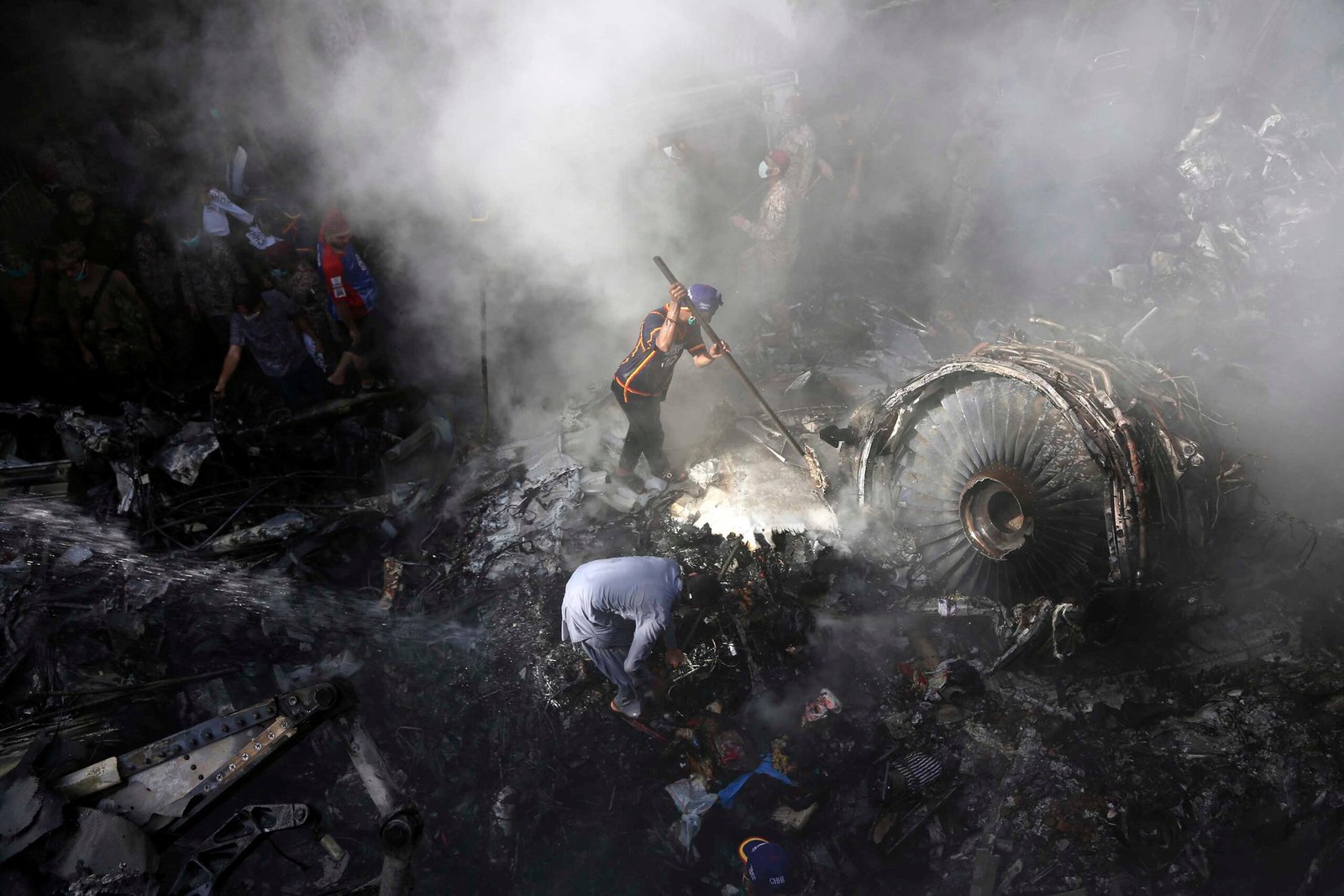
Q: You say in your book that three things conspired to save you: the seat, the fall, and the kindness of people. Could you tell us about the other two?
ZM: I was unconscious. I had burns. My spinal cord was displaced. Strangers rescued me, even though they didn’t know who I was. They pulled me from burning wreckage, risking their own lives. One of them, Tanvir, later told me the car I landed on burst into flames just moments after they pulled me out.
Rizwan, another rescuer, only realized I was ‘important’ after seeing the news. But none of them needed that incentive. They simply ran toward the sound of someone in pain.”
So yes, it wasn’t just the seat or the fall. It was the sheer humanity of people—their courage, their kindness—that saved me. That’s what I want re-membered.
Q: Can you tell us a little bit about your recovery process—both physical and emotional?
ZM: It’s really the emotional and mental recovery that’s the real challenge. And I think we often underestimate that. If you’re mentally strong, you can get through the physical pain. But let me tell you something: it all comes down to the kind of support you have. Recovery—whether mental, emotional, or physical—becomes bearable when you’re surrounded by love and care.
I’ve been incredibly fortunate in that regard. I have, quite honestly, some of the best family in the world. Friends who stood by me. Colleagues who went above and beyond. That’s why I’m able to have this conversation today. It’s not just about individual strength—it’s about your ecosystem.
Q: You’ve been candid about your mental health post-crash. It’s rare for someone in a leadership position. What was that journey like?
ZM: The world we live in today, with the kind of pressures we face, the nonstop barrage from social media, and the sheer pace at which everything is evolving, we all carry some level of mental stress.
Zafar Masud speaking at the Launch of his book Seat 1C
“Zubair played an active role in escaping. He had burns over 31% of his body but managed to escape through the hull. My escape was passive. I had changed to seat 1C, and when the plane broke apart, a fissure formed near my seat. The seat was ejected and landed on a third-floor rooftop, then slid onto
the bonnet of a car, softening the fall.”The Goodness of People (page 67 Seat IC)
So yes, I genuinely believe that many of us—if not most—need some degree of mental health assessment and treatment. Why? Because if I’m mentally compromised, I have no business being in a position where critical decisions are expected of me. That would be irresponsible—not just to myself, but to others who rely on me. So I went through a full mental health assessment and therapy for four months. And only once the therapist was confident, did I return to work.
Q: What made you decide to write this book?
ZM: When we speak openly about what failed (entire eco-system), we reduce the risk of it happening again. This book is a humble attempt in that direction. It’s my way of keeping the memory of those ecosystem failures alive—a small but permanent footprint in this otherwise fleeting world. What’s happened cannot be undone. But we owe the truth to the victims and their families. That truth is not just about closure—it’s also a tool for prevention.
Q: And now that the book is out, how has that affected your emotional state?
ZM: Every time I read this book, it triggers thoughts I didn’t even know were buried. It resurrects the entire experience—the crash, the aftermath—and I’m forced to relive it again and again. It’s emotionally exhausting. So, after the book launch, it’s important to emphasize that the trauma is not just about the crash.
The book is about the learnings from that crash. The central thesis is very simple, but profound: if you want to fix the world, start with yourself. Be a good human being. That alone can create a ripple effect.
Q: But that philosophy—‘start with yourself’—comes with a heavy burden too, doesn’t it?
ZM: Absolutely. When I say “just be a good person,” that sounds simple. But for me, it’s a responsibility. Because I have to embody that in every interaction. The pressure to live what I preach is immense.
“So, if there’s one takeaway, it’s this: live in such a way that when those last 30 seconds come, you’re able to forgive yourself.”
Q: You’ve mentioned the weight of responsibility that comes with surviving and speaking out. How does that affect your day-to-day interactions and leadership?
ZM: Every time I respond to someone—whether it’s in a meeting, a conversation, or even here with you—I feel like I’m standing in my own courtroom. I’m in the witness box, asking myself: “Am I truly living up to what I talk about? Or am I starting to drift?”
That self-accountability is constant. And honestly, that kind of inner dialogue—on a daily basis—requires support and therapy. And I say that openly, without any shame. So for me, psychotherapy isn’t a weakness. It’s part of leadership. It’s part of staying honest with myself and with the people who trust me.
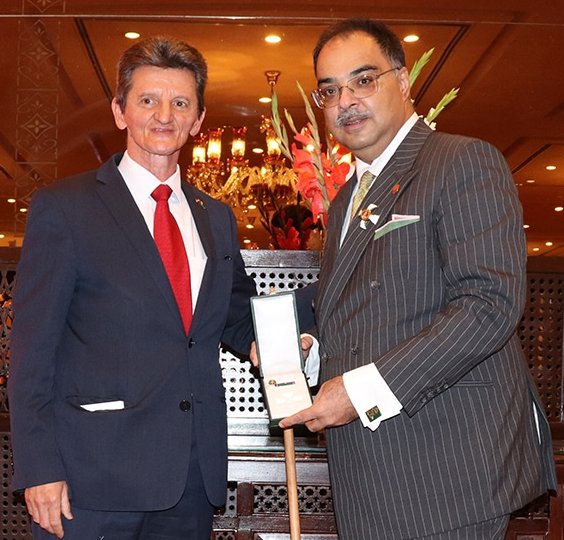
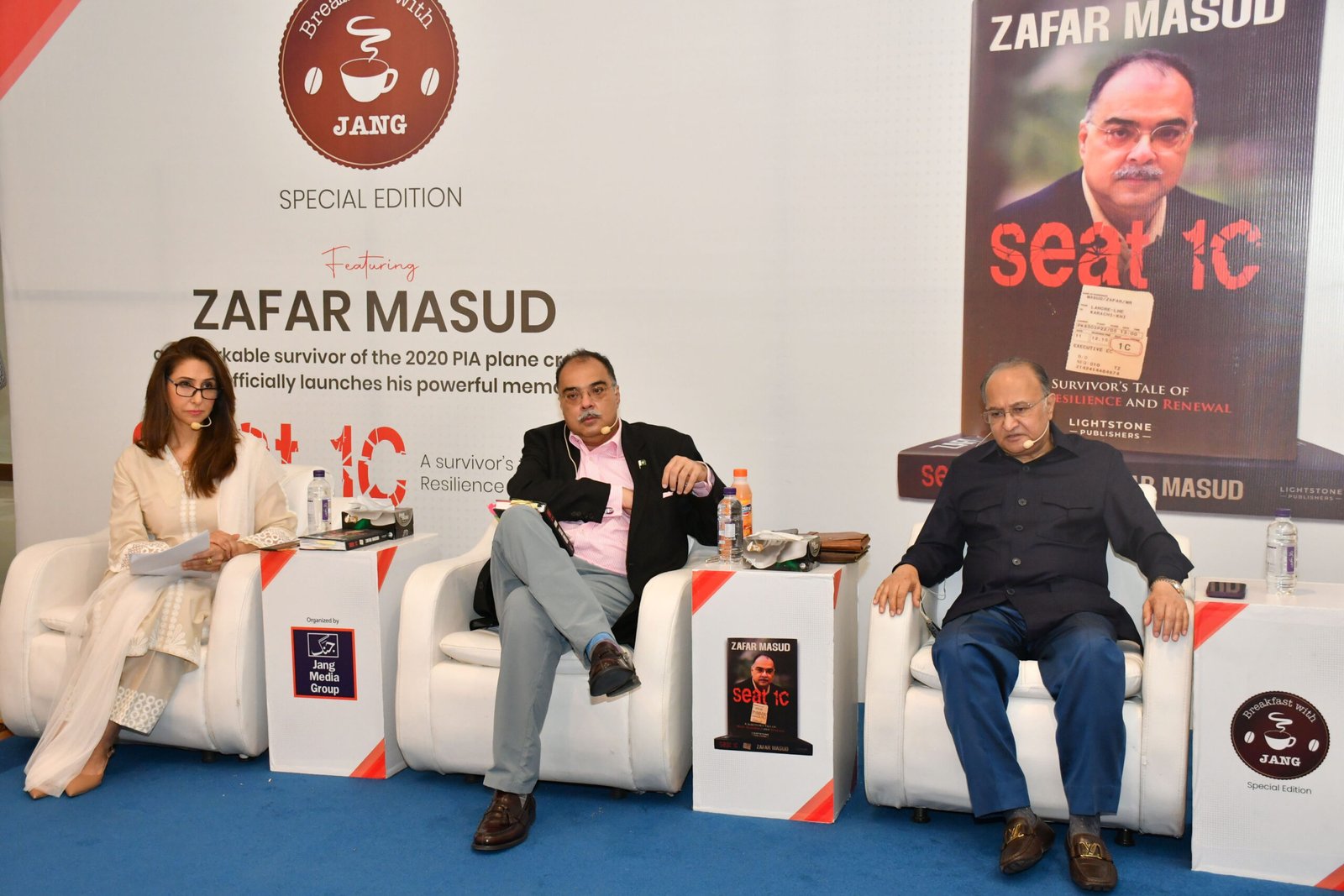
Q: What are those last 30 seconds like, just before impact?
ZM: Those 30 seconds are what this book is rooted in. In fact, my next Urdu edition will have an entire chapter dedicated just to that moment.
We often ask: what happens after death? But I think the more powerful question is—what about the life before death? Those 30 seconds before impact very few people experience that and survive to speak about it.
My entire life flashed before my eyes—childhood, relationships, professional milestones, regrets. I found myself asking: “Am I content with the life I’ve lived?”
I genuinely believe everyone will face that moment. And it won’t be God judging you—it will be you judging yourself. That’s what we often forget.
Q: So, how do we prepare ourselves for those 30 seconds before impact?
ZM: You can’t negotiate with time in that moment. So the answer is: prepare now. Live with the awareness that these are your 30 seconds. Every day, every decision. If you keep that perspective alive, you’ll instinctively start doing what’s right. You’ll make the necessary corrections as you go. Because once those real 30 seconds come, it’s too late for course correction. You won’t get a second shot.
Q: Do we truly have that strength to judge that quickly, that honestly, in a moment of crisis?
ZM: Yes, we do. It’s not planned, but it’s automatic. You won’t have time to think through it—it just comes to you. It’s your instinct that guides you.
And interestingly, in my case, I felt ready. I told Allah, “I’ve tried to live with faith. If this is it, I’m ready to meet You.” I wasn’t afraid of death. My father was a brave man—I think I inherited some of that from him. Death doesn’t scare me.
What’s hard is staying alive. That’s the difficult part.
Q: Did surviving change your sense of purpose?
ZM: Absolutely. Survival brings with it a certain responsibility. When you’re one of the few who make it, you carry the burden of reminding others just how fragile life is—and how important it is to act with awareness. I didn’t want this book to be sensational, even though that might have been easier. I wanted it to be grounded. About reflection. About growth. For all of us, not just for those who were on that flight.
“God is merciful. But we, to ourselves, are not. We hold on to smallness—rituals, money, titles, ego. We forget the real metrics: integrity, love, impact. So, if there’s one takeaway, it’s this: live in such a way that when those last 30 seconds come, you’re able to forgive yourself.”



